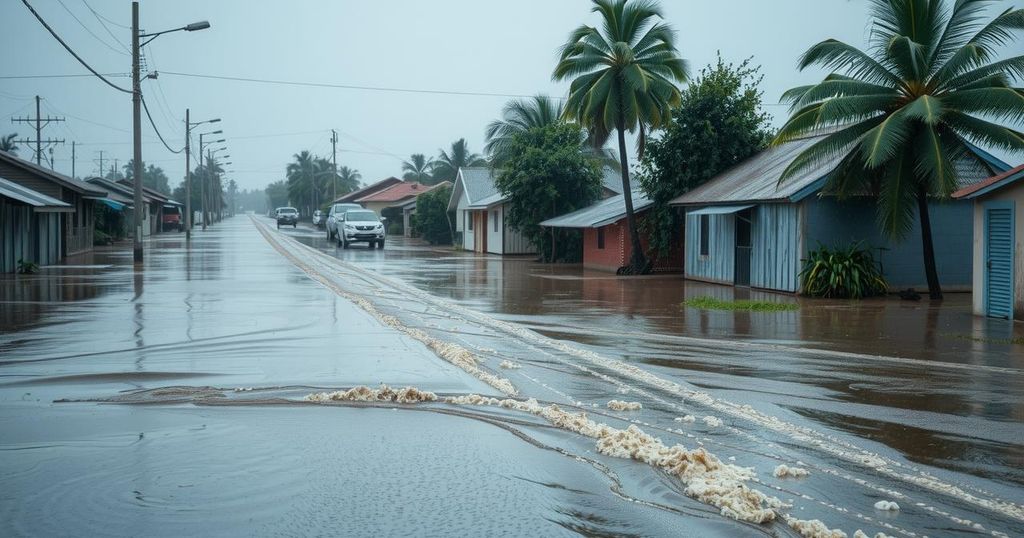Cyclone Chido Devastates Northern Mozambique: A Critical Update
Tropical Cyclone Chido has severely impacted northern Mozambique, affecting over 181,000 individuals, with the majority being women and children. The storm has caused extensive damage to homes and infrastructure, complicating relief efforts in a region already burdened by conflict and displacement.
Tropical Cyclone Chido has wreaked havoc in northern Mozambique, particularly affecting the Cabo Delgado, Nampula, and Niassa provinces. The cyclone, which struck over the weekend, has left approximately 181,554 individuals impacted, with a staggering 75% of these being women and children. More than 36,000 homes have been either completely or partially destroyed, making recovery challenging for communities already grappling with systemic vulnerabilities due to years of conflict and economic struggles. The storm’s sheer force has severely disrupted transportation and communication networks, complicating relief efforts for the affected populations.
As communities attempt to recover, the repercussions of Cyclone Chido are especially felt amongst the displaced. Before this disaster, around 300,000 individuals were already sheltering in precarious conditions due to ongoing regional conflicts. The cyclone has not only obliterated shelters but also reverted many displaced families back to dire circumstances, erasing the minimal stability they had managed to establish. The National Institute for Disaster Management (INGD) continues to assess the full scope of the devastation as urgent humanitarian responses are mobilized to support the affected regions.
The topic at hand concerns the destructive impact of Tropical Cyclone Chido in Mozambique, a nation that has faced repeated environmental and humanitarian challenges. The cyclone’s severe winds and rainfall have caused extensive damage to infrastructure and housing in the northern provinces, especially Cabo Delgado, Nampula, and Niassa. The region has been under strain from prolonged conflicts, leading to significant displacement and vulnerability among its population. The urgent need for a comprehensive response underscores the ongoing challenges faced by disaster management bodies in Mozambique amidst such unprecedented climatic events.
In conclusion, Tropical Cyclone Chido has significantly impacted northern Mozambique, further exacerbating the hardships faced by communities already affected by conflict and displacement. With substantial infrastructure damage and a high percentage of women and children among those affected, the situation remains dire. Ongoing assessments and prompt humanitarian efforts will be crucial in addressing the needs of the impacted populations and aiding their recovery in the weeks and months ahead.
Original Source: reliefweb.int




Post Comment